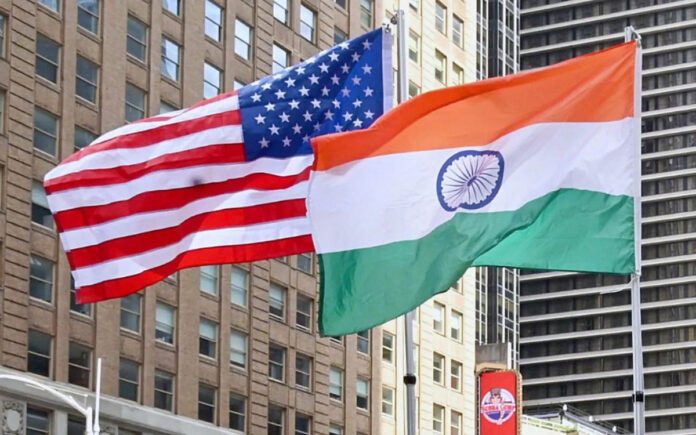New Delhi: As high-level India-US bilateral trade negotiations near a critical juncture, discussions have hit roadblocks in key sectors such as agriculture, dairy, digital services, and pharmaceuticals, according to a report by Mint. The United States is reportedly pushing aggressively to open up these sensitive Indian markets, while New Delhi is standing firm on securing a fair and mutually respectful deal that safeguards its domestic priorities.
The latest round of negotiations took place in New Delhi from June 4 to 10, led by Brendan Lynch, Assistant US Trade Representative for South and Central Asia. While a portion of the US delegation has returned to Washington, several officials remain in India to continue pressing for firm commitments—particularly on contentious market access points, the report said.
Virtual talks are expected to continue, with both sides working against the clock to conclude an agreement before the expiry of a 90-day pause on retaliatory US tariffs on July 8.
India has long resisted liberalising its agriculture and dairy sectors due to socio-economic sensitivities and concerns about the impact of unregulated imports on its rural economy. A source cited by Mint said, “The negotiations are not progressing as expected. The talks were meant to be two-way, as agreed. However, the US team’s insistence on opening certain critical sectors comes across as a take-it-or-leave-it offer.”
Despite outreach to the US Trade Representative’s office, the US Commerce Department, the US Embassy in New Delhi, and India’s Ministries of Commerce and External Affairs, no official responses were available at the time of publication. Moneycontrol has not independently verified the Mint report.
One of the primary sticking points is US dairy exports. India has made it clear that unless the US changes its cattle feed practices—specifically, the use of non-vegetarian feed—and aligns with India’s vegetarian certification standards, products like American cheese and butter will not be permitted. However, India is reportedly open to considering tariff reductions on specific items such as fruits and nuts.
Also Read | India to Hunt Terrorists ‘Wherever They Are’, Including Pakistan, Says Jaishankar
The urgency to reach a deal by July 9 is being driven by the looming threat of a 10% universal US tariff on Indian goods, coupled with an additional 16% country-specific tariff. Indian negotiators believe the current US stance contradicts the joint commitment made on February 13, which aimed for a “mutually beneficial” Bilateral Trade Agreement (BTA) by fall 2025.
According to the report, the US is seeking steep tariff reductions for its agricultural exports—including shrimp and dairy—and the elimination of non-tariff barriers, without offering India reciprocal market access for its own goods and services.
Also Read | Yunus’s Anti-India Provocation Foiled by Bangladesh Military Leadership
Nevertheless, Indian officials remain hopeful. “It’s not that it can’t be done, it’s possible, as both countries are in favour of it. In fact, India was the first country to be offered a trade agreement. We are trying our best to make it happen and keep the trade dialogue on track,” said one official quoted by Mint. The source also dismissed suggestions that geopolitics was impeding progress, citing Washington’s recent trade engagements with the UK and China as evidence of continued US interest in forging agreements.
Indian negotiators have also expressed frustration over the United States’ stringent sanitary, phytosanitary, and drug-related import regulations. Practices like the destruction of entire consignments of fruit due to a few failed samples have been described as excessively punitive and detrimental to fair trade, the report noted.



